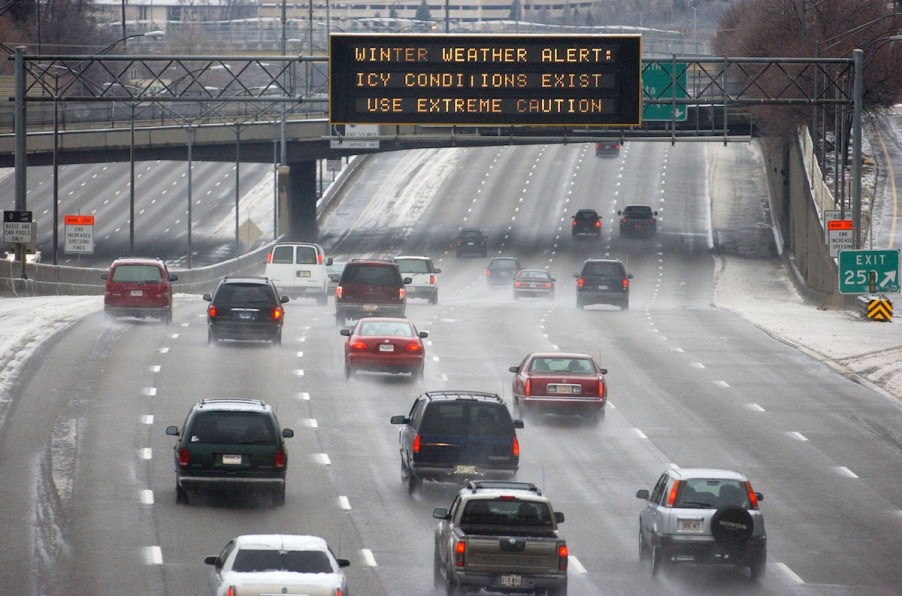
Do Gas-Powered Cars Lose Driving Range in Cold Weather Like EVs Do?
Electric car owners who drive in cold climates might already know EVs lose some of their range in chilly weather. That can be problematic for many reasons. But does cold weather similarly hurt internal combustion engine vehicles’ fuel economy? Here’s a look at whether gas-powered cars lose driving range in cold weather as EVs do.
Cold weather can severely reduce an EV’s range
Many factors come into play regarding how an EV handles cold driving conditions. As such, different EVs react differently to cold weather. For example, the Chevy Bolt is one of the worst EVs for cold climates because it only gets 66% of its original estimated range in 20-to-30-degree weather. Meanwhile, the Tesla Model Y handles cold weather much better, retaining 98% of its original range estimate, Axios reports.
But while 20 to 30 degrees Fahrenheit might be cold for most people, it’s not as frigid as temperatures can get. The farther the mercury drops, the worse an EV will generally perform. For example, at 20 to 30 degrees, most EVs can expect to lose about 20% of their range. At 0 degrees, EVs can expect to lose 50% of their range. That’s primarily because most drivers turn up the heat at those temperatures, eating up electricity from the battery.
Gas-powered cars also lose driving range in cold weather

That said, cold weather can also affect gas-powered cars’ driving range, according to the EPA. For example, when it’s 20 degrees out, a gas-powered car can expect to lose about 15% of its fuel economy. On shorter trips, a car’s gas mileage can drop by about 24%. Because cold weather makes vehicles less fuel efficient, they’ll need to burn more gas, meaning their driving range will suffer.
Unsurprisingly, because hybrid vehicles use gas and electric power, they also lose range in cold weather. Hybrids lose about 32% of their fuel economy when it’s 20 degrees outside, but they lose less driving range than EVs. There are many reasons why gas-powered cars and hybrids lose range in cold climates, and some of those reasons are unique to each type of powertrain, while others aren’t.
How does cold weather affect gas mileage?
A vehicle’s HVAC system needs power. An EV uses its battery to power that system, while a gas-powered car uses gasoline. Using the heater consumes more energy, lowering a vehicle’s driving range. Plus, cold air is denser, adding more drag to a car and forcing the vehicle to use more energy to move. In addition, icy and snowy roads can lower tire grip, requiring the car to use more energy when braking.
However, gas-powered vehicles have unique issues that don’t affect EVs. For example, winter-blend gasoline can have lower energy density than summer blends, which can lower fuel economy. Gas-powered cars also need to warm up first, so they lose more efficiency on short trips. On shorter trips, the car is not at its ideal temperature for a longer proportion of time. Lower temperatures can also cause friction in the engine and transmission because the fluids are cold, thus reducing fuel efficiency.


